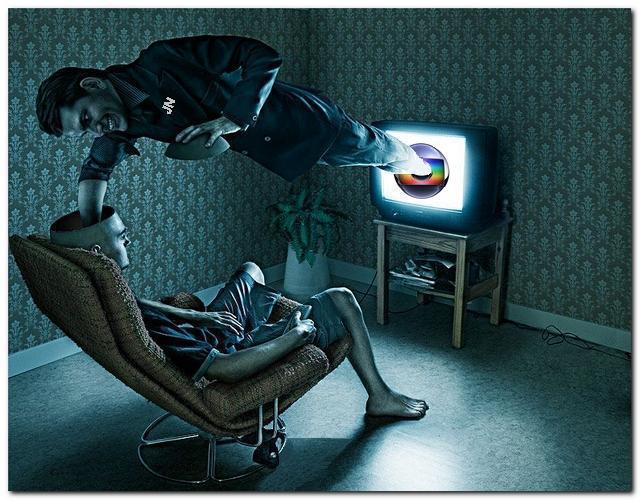 (credit)
(credit)"The spectacle is the flip side of money. It, too, is an abstract general equivalent of all commodities. But whereas money has dominated society as the representation of universal equivalence — the exchangeability of different goods whose uses remain uncomparable — the spectacle is the modern complement of money: a representation of the commodity world as a whole which serves as a general equivalent for what the entire society can be and can do. The spectacle is money one can only look at, because in it all use has already been exchanged for the totality of abstract representation. The spectacle is not just a servant of pseudo-use, it is already in itself a pseudo-use of life." (49)
On a regular basis, images manipulate our choices and spending. In order to get money, the "spectacle" uses a distraction from reality via visual means. Advertising in particular, has an emotional effect on our perception of things, often making us believe that we certain products are needed in order for us to feel complete. As a result, people work more, and enjoy less. The core values of humanity are being replaced by the need to own certain products that we believe will buy our happiness.
Debord uses the theme commodity as a way of explaining how much our society has changed. In the past, people used to be able to get their needs via trading of goods, showing what you have to offer for what they've got to offer. We used to be less driven by buying, but under the wave of globalization, consumerism has taken over our way of life.

We are no longer satisfied with the things that we have. We see something bigger, better, or brighter, and we have the need to own it, replacing the perhaps still functional old one for the more interesting new one.
It is important to note that images do not always influence a person's consumption, but every decision that we make. With the up and coming elections, I wanted to educate myself and learn more about each candidate. When I Googled (is "Google" a verb?) or better said, "looked up" President Obama, this picture came up among the images. Published on the cover of Rolling Stone Magazine, President Obama is perceived to have a halo. When I look at this picture, I see President Obama in a pedestal, rising him from a human state to higher religious stature. Although this is a publication of a not so recent cover, I can see this image can affect one's opinion on President Obama.
One of Debord's key arguments is that everything is a representation. These images come together to form a fragmented version of reality. Reality itself, loses its core essence, and material things become the new 'Real'.

No comments:
Post a Comment